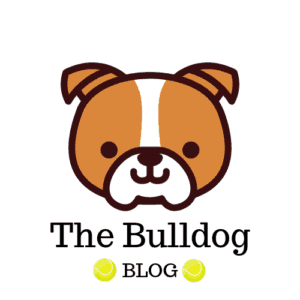Just as with humans, hiccups in bulldogs are quite common. In this article, we are going to dig deeper into this topic and find out how hiccups really occur in bulldogs and how you can cure them.
Why do bulldogs get hiccups?
Hiccups are common in both humans and dogs, and this is something that is not a serious concern. So, what are hiccups in bulldogs exactly? Hiccups are a sudden involuntary contradiction of the diaphragm. The hiccups can be a single event or a sequence of multiple hiccups that last a few minutes.
The most common cause of your bulldog getting hiccups is eating or drinking water too fast. The fast pace of swallowing lets excess air get in along with their food and water. This irritates the diaphragm and ultimately disturbs the normal breathing pattern of your bulldog, resulting in hiccups.
Another reason for the hiccups can be caused their excitement because dogs are very playful and have very little control over their positive emotions. During moments of excess emotions showing their enjoyment, their breathing pattern can change, and they can get hiccups.
Finally, stress and or external factors can cause hiccups in bulldogs, such as inhaling any sort of irritant or when they feel too cold, too hot or tired.
Which is more likely to get hiccups, puppies or adult bulldogs?
Hiccups are more common in puppies than in adult dogs. When dogs grow older, they get very few hiccups or no hiccups at all. Puppies, on the other hand, are much more prone to hiccups, this is because they are very active and have a very high excitement level.
Are the hiccups painful for bulldogs, should owners be worried?
As we know, hiccups are something that occurs due to the contraction of diaphragm muscles but is it painful or cause for concern?
Hiccups are not a very serious concern in fact, they can be useful. Some experts believe that hiccups help small puppies to get rid of gas or other irritation in the stomach.
How long do hiccups last?
Hiccups are temporary. Our bulldog puppy gets the hiccups daily, but they tend to go away after a few minutes. If you see your dog’s hiccups lingering for more than 30 minutes, call your vet to see if there is any reason to be worried.
How to cure your bulldog’s hiccups?
Usually, hiccups tend to go away on their own, so you don’t have to get indulge in some unproven ways to get rid of the hiccups. These include – pulling out tongue and scaring your dog. These are just not the way to get rid of hiccups.
We’ve found siting our bulldog down and calming him clears up his hiccups in a few minutes.
Other methods we’ve heard work:
You can lay down it on the floor on its back and give a smooth rub on its tummy. The idea here is to steady the breathings.
Give some water to your bulldog. Sometimes when bulldogs overheat, they may experience hiccups, It’s important they drink the water slowly and calmly, otherwise, it can make the hiccup spell worse.
Check on their diet and eating patterns. If they eat quickly, you must give them the food in smaller portions. When they finish a portion, you can then give them the next.
Exercise can also cure hiccups, as the heart rate and breathing pattern can change and then bring the condition to normal. You want to avoid over-exercising, especially when it is too hot out there.
Foods to avoid preventing hiccups
Strictly avoid giving food in bulk if you have seen your dog frequently getting hiccups.
Though honey, sugar or other sweet stuff can be useful for blood sugar regulation, you must avoid giving it on a regular basis.
Don’t give any food items that require too much chewing, as those substances have xylitol which is not good for dogs.
Startling your dog can backfire. Though it works on humans sometimes, not suggested to try on dogs. Why? Because it can create behavioral issues.
What causes hiccups in dogs?
#1. Eating too fast
The first and most obvious sign or symptom is your dog eats too fast and drinks too quickly. Due to fast eating, the air along with food travels inside and disturbs the diaphragm which causes irritation or muscle contraction, which ultimately gives hiccups to your dog.
#2. Excitement or Sadness
These emotions are common in dogs, which can change the normal breathing pattern and dogs can get hiccups.
#3. Overheating
Dogs, especially bulldogs are very prone to heat strokes, which again disturbs their heart rate and breathing, and they start hiccupping.
